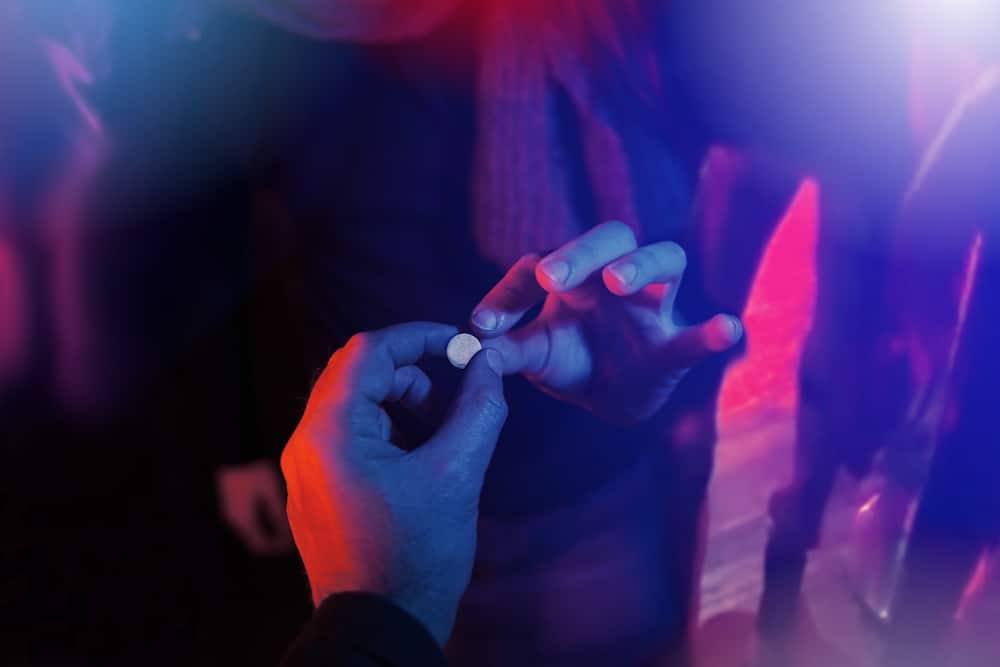Tomorrow, the Drugs of Dependence (Personal Use) Amendment Act 2022 will come into effect, decriminalising the personal possession of small amounts of drugs – including heroin and ice – in the ACT.
People will no longer be exposed to potential prison sentences and instead may be issued a caution, a $100 fine, or be referred to a diversion program.
While penalties have been reduced, illicit drugs are still illegal and will be confiscated.
ACT health minister Rachel Stephen-Smith said these changes will reduce the stigma experienced by people who use illicit drugs and encourage more people to come forward and receive support.
“The ACT Government does not condone illicit drug use,” Ms Stephen-Smith said. “The safest option is to not take drugs at all. However, we recognise people will use illicit drugs and believe a health-based approach to drug use leads to better outcomes.
“By treating drug use as a health issue, not a criminal one, we are providing pathways for people to access the health services and support they need.
“Drug counselling and other treatment services will be offered to people referred to the diversion program. This provides an opportunity for people to learn more about the services available to them and to access supports they may not have considered before.”
ACT Labor MLA Michael Pettersson, the bill’s proponent, said: “We’ve worked with experts, service providers, and people with lived experience to ensure that we are well prepared for this change.
“These reforms are a commonsense step forward that finally puts healthcare before handcuffs, and allows our most vulnerable to get the help that they need.
“I believe that Canberrans understand that the ‘just say no’ approach hasn’t stopped people from using drugs. It never has and it never will. The community and the experts recognise that threatening people with jail time or a criminal conviction is unproductive, and ultimately feeds into cycles of recidivism.”
However, the Canberra Liberals, the police, and bereaved families have all raised concerns over recent months that decriminalisation will make drugs more available, encourage drug use, and increase crime rates. (See Canberra Daily’s earlier story.)
Canberra Liberals MLA Jeremy Hanson, Deputy Leader of the Opposition and Shadow Minister for Police, unsuccessfully called on the government to delay implementation of the controversial measure until after next year’s election. Likewise, Federal Shadow Attorney-General, Senator Michaelia Cash’s bill to overturn the law failed.
“The Canberra Liberals remain strongly opposed to these laws and we have committed, that if elected in October 2024, we will repeal these laws,” opposition leader Elizabeth Lee said today.
“We have heard in the Health Minister’s own words, boasting about how she went about getting this policy through by stealth because she did not want to go through proper and appropriate processes and scrutiny.
“Anyone who has seen the effects of increased drug use in the community has very grave concerns about what this might mean for us as a community more broadly.
“We have heeded the warnings from law enforcement in terms of the police concerns that have been raised, as well as concerns from people in the health sector who are worried about the lack of investment that this Labor-Greens government has put into our health system.
“Business owners have also raised concern about what is going to happen if someone who is under the influence of drugs comes into their premises, and they are worried about what rights they have to protect themselves and their staff.”
ACT Policing have worked with ACT Health and stakeholders to implement the changes.
ACT Chief Police Officer Neil Gaughan reminded the public that drug possession remains a criminal offence.
“The legislation has simply reduced the penalties that now apply. This is all that has changed.
“The ACT is not a place where people can do drugs freely.
“Police will still seize illicit drugs if we see them, even in small quantities, and will continue to divert the majority of personal possession offences to our partners at Canberra Health Services.”
Drug driving laws have not changed, either.
“It remains an offence to have any amount of an illicit substance in your system while driving,” Mr Gaughan said.
“ACT Policing supports harm minimisation strategies, and agrees that drug dependency is an issue best addressed by the health system.
“Our focus remains on those who bring drugs into the Territory and profit from their distribution among our community. We will continue to target drug trafficking and criminality driven by drug use, not drug possession offences.”
The ACT Government does not expect these policy changes will lead to significant changes in patterns of drug use. However, it will undertake an independent review in two years to assess the implementation and success of these new laws.
Chris Gough, Executive Director of the Canberra Alliance for Harm Minimisation and Advocacy (CAHMA), said this legislation switches the focus from criminalisation to health and support.
“Drug criminalisation has serious and profound harms associated with it for people who use drugs and their families, and this legislation acknowledges these harms and takes a major step towards preventing them.
“By allowing people who use drugs to be referred to a health service instead of being given a criminal conviction, people are encouraged to seek help and treatment and also, importantly, showing that society hasn’t given up on them, but instead is understanding and supporting them to do better.”
“The ACT is signalling very clearly here that we are a progressive and forward thinking society, and we expect people who have health issues to be treated with dignity and respect and not like criminals.”
For more information, visit www.health.act.gov.au/about-our-health-system/population-health/drug-law-reform



